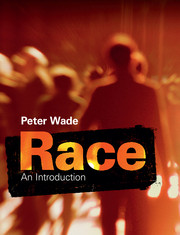The Time of the Multiracial
American Literary History
Volume 27, Number 3, Fall 2015
pages 549-556
DOI: 10.1093/alh/ajv026
Habiba Ibrahim, Associate Professor of English
University of Washington, Seattle
Habiba Ibrahim is the author of Troubling the Family: The Promise of Personhood and the Rise of Multiracialism (2012). Her current book project, Oceanic Lifespans, examines how age and racial blackness have been mutually constituted.
These three recent studies all read how mixed racialism expresses and challenges the terms of US nationalism during the nineteenth and early twentieth centuries. Collectively, they account for a period when the nation developed as a global force through a series of racializing projects, implemented through intra- and international war, imperialist expansion and conquest, and the consolidation of the color line at home. Tropes such as miscegenation, tragic mulatta, and genres of mixedness such as the “racial romance” (Sheffer 3) reveal a key aspect of the cultural imagination during the turbulent era that led up to and inaugurated the “American Century.” Figures of deviant intimacy—interracial sex, incest, same-sex filiation—and figures of gender, such as the mulatto/a, and the tragic muse revealed the cultural outcomes of the unfinished project of nation building. All of these studies take racial mixedness and its correlating categories as key analytical starting points for unmasking the neutrality or invisibility of state power. Thus, they bring to mind the urgency of the current moment: what analytics can interrupt the post-ness—postracialism, postfeminism, and postidentitarianism—of the present?
1. Neoliberalism, Postidentity
Twenty years ago, mixed racialism first appealed to literary scholars because it offered a critical space in which to explore the era’s political contradictions and transitions. During the heyday of the so-called multiracial movement, key developments in the cultural politics of identity were well under way. The culture wars were still raging with neoconservative moralists and left-of-center liberals vying for influence over social and political life. At the same time, neoconservatives and neoliberals converged around the erosion of identitarian categories as social tools for making political and historical critiques. By the neoliberal era of the 1980s and 1990s identity was increasingly viewed as the stuff of separatist and single-issue groupthink, rather than as an instrument through which to analyze the operations and historicity of power. Perhaps this explains the remarkably accelerating cultural and scholarly interest in multiracial identity by the mid-1990s. After all, what did the appearance of the multiracial indicate? Under the umbrella term “multiracialism,” subjects with competing social, political, and cultural views formulated clashing accounts of how to situate race in US discourse. As a diagnostic tool, multiracialism bore the potential to cut through the present.
2. Gender, Sexuality, Family
Twenty years later, interdisciplinary scholarship in philosophy, performance studies, literary, and cultural studies increasingly take multiracialism as a starting point for thinking historically about social identities and cultural production. Current literary scholarship retrieves unfamiliar, forgotten history in order to diagnose the present, or to reconsider our present-day relationship to the historical. Some scholars have started with how multiracialism is treated within current US discourse—as the balm of postracial transcendence on the one side, as another separatist identity on the other—to ask how we’ve arrived at these particular interpretations. This line of inquiry denaturalizes present-day meanings attached to the multiracial and clearly departs from work that vehemently argues one position or the other.
What stands out about more recent studies—Kimberly Snyder Manganelli’s Transatlantic Spectacles of Race (2012), Jolie A. Sheffer’s The Romance of Race (2013), and Diana Rebekkah Paulin’s Imperfect Unions (2012)—is the way they represent a decisive turn toward staunchly comparativist, even transnational approach to multiracial literary studies. Comparativism indicates that the field is broadening its spatial and analytical scope to pursue fuller explorations of the historical and historiographical. Such a broadened scope repositions interest in the cultural politics of gender, sexuality, and family as deep engagements with the modern.
Like Suzanne Bost’s Mulattas and Mestizas (2003), Teresa Zackodnik’s The Mulatta and the Politics of Race (2004), and Eve Allegra Raimon’s The “Tragic Mulatta” Revisited (2004), Transatlantic Spectacles of Race, investigates early intersections between racial amalgamation and womanhood by exploring how the figurative feminization of racial mixedness has been instrumentalized to vie for various nationalist and counter-nationalist outcomes over the long nineteenth century. Manganelli’s unique contribution is to read the mixed-race “tragic mulatta” of the Americas alongside its heretofore-unacknowledged counterpart, the Jewish “tragic muse” of Victorian British literature, thereby positioning both blackness and Jewishness along the same…
Read or purchase the review of the three books here.



